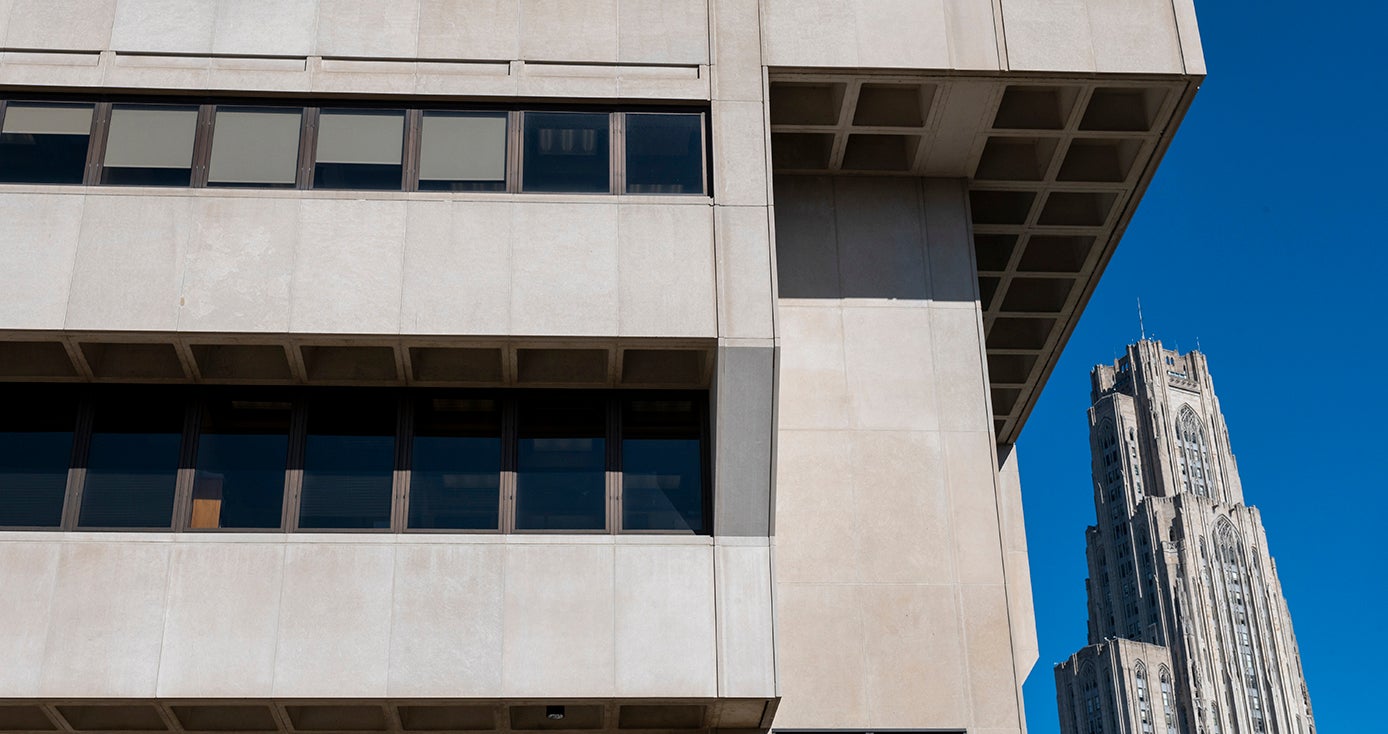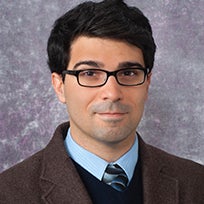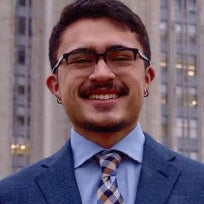
Subscribe to Pittwire Today
Get the most interesting and important stories from the University of Pittsburgh.Senate Council’s Work Designed to Uplift Entire Campus Community
When Senate Council Vice President David Salcido made his first appearance before the group in 2017, he hadn’t yet been elected to serve in any capacity and didn’t know what to expect. By the time the meeting was over, however, he realized he wanted to take on an official role and support his segment of the campus community through the Faculty Assembly.
“I had heard from other people that the senate existed, but really, I didn’t have a sense of what they did. I knew they had a University-wide reach and wanted to learn more,” Salcido, a research assistant professor in the Department of Emergency Medicine, said. “I had an opportunity to bring an announcement about a public health project I was working on. I came to one of the meetings, got permission to make an announcement and got a really warm reception from everyone there. After that, I ran to be elected.”
Salcido had the benefit of a formal introduction to the Senate Council—a monthly gathering of administrators, staff, faculty and students representing committees focused on topics that affect their core constituencies. However, most of the campus community is often just as confused as Salcido was when it comes to what the group does and how it operates.
Chris W. Bonneau, president of the University Senate (which includes both Faculty Assembly and Senate Council) and a professor in the Department of Political Science in the Kenneth P. Dietrich School of Arts and Sciences, described it as “the shared governance body that brings students, staff, administrators and faculty together.”
The group’s administrative arm includes Chancellor Patrick Gallagher and a team of administrators designated by the chancellor.
How to join
Is your interest in shared governance piqued? Here are upcoming meetings you won’t want to miss:
- Senate Council meetings are held monthly. The next meeting is on Sept. 17 at 3 p.m.
- Student Government Board meetings are held Tuesdays at 8:45 p.m. weekly. The next session is Sept. 22.
- Faculty Assembly meetings are held monthly. The next session is Wednesday, Oct. 7, at 3 p.m.
- Staff Council meetings are held the third Wednesday of every month. The next session is Oct. 21.
Members of the faculty—which includes individuals representing the Dietrich School, schools of the professions, school of the health sciences, regional campuses and Staff Council—are elected to serve two year terms on Senate Council and three year terms on Faculty Assembly.
Student members of Senate Council feature elected representatives from the Student Government Board (SGB), College of General Studies, the Graduate and Professional Student Government and the Postdoctoral Association.
In addition to Senate Council, which meets monthly, there are also standing committees which address issues ranging from tenure and academic freedom to educational policies to equity and inclusion. Those committees pull in faculty, staff, student and administrative liaisons from the broader council for comprehensive discussions about the topics they’re hoping to address.
“A lot of our work goes on in those committees because we have groups of folks that are interested in those topics. They work closely with the administration to craft policies. So by the time we get to Senate Council, if it’s done correctly, everything goes pretty smoothly,” Bonneau said.
Student Government Board President Eric Macadangdang got his first introduction to Senate Council as a member of the first year council, an SGB initiative that helps freshmen interested in student governance to develop leadership skills. He saw firsthand how the president at that time used information learned during Senate Council sessions to further student interests. Unfortunately, he doesn’t believe enough students make that same connection.
“Undergraduates, I don’t think, have a firm understanding of what Senate Council is. If they did, they’d have a deep interest,” Macadangdang said. “Students always have interests, needs and concerns, and I try my best within student government to say, make sure you’re conveying those to us so we can follow through on some of them. Senate Council is the same thing. If students have issues or concerns, they can go to that space and learn what other people are doing and where there can be potential opportunities to address an issue.”
Staff Council president Andy Stephany, who is a division administrator in the Department of Medicine, said his experience on Staff Council has helped him support Pitt staff at large while sharpening a few of his own skills in the process.
“When I joined Staff Council, I got put on a communications committee, and my background is accounting. I developed a new skill there and feel much more comfortable communicating, whether it’s written, verbal or talking in front of groups,” Stephany said.
“More broadly, through Staff Council and Senate Council, we’re able to improve communication from staff to administration. We have a direct line of communication with University leaders and can share feedback about things that are happening, whether they’re tangible benefits, or just the way staff are hearing about news on campus.”
That line of communication can also lead to direct support from administrators for causes and initiatives. For Bonneau, that became clear when he asked administrators attending a Senate Council meeting to sit in on a class for the Pitt Prison Education Project, an initiative to educate incarcerated students alongside Pitt students inside prisons.
“Provost Ann E. Cudd has come, Kathy Humphrey has come, Kenyon Bonner has come, Joe McCarthy has come,” said Bonneau. "We’ve gotten people from all across the University to come in and assist us and elevate the program. As a result of all that, we’re now able to give college credit to the incarcerated students."
Bonneau encouraged others to consider Senate Council as an option to advance their work and ideas across campus.
“We’re always trying to bring new voices into shared governance, particularly voices of individuals who are historically underrepresented, both at the University and within shared governance systems. I really encourage people to get involved,” he said.
“There are very few things that happen at the university that we are not involved in. Everything that faculty, staff and students care about, not only are we involved, but oftentimes we’re the ones setting the agenda.”
Senate Council meets once per month during the academic year. The next meeting of Senate Council will take place on Sept. 17 at 3 p.m.




